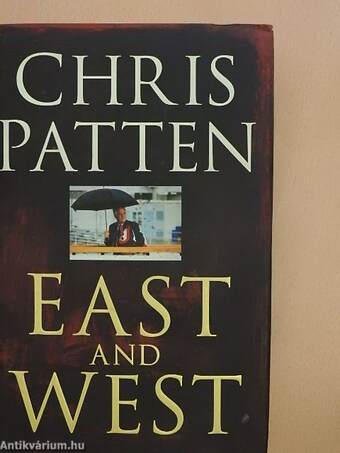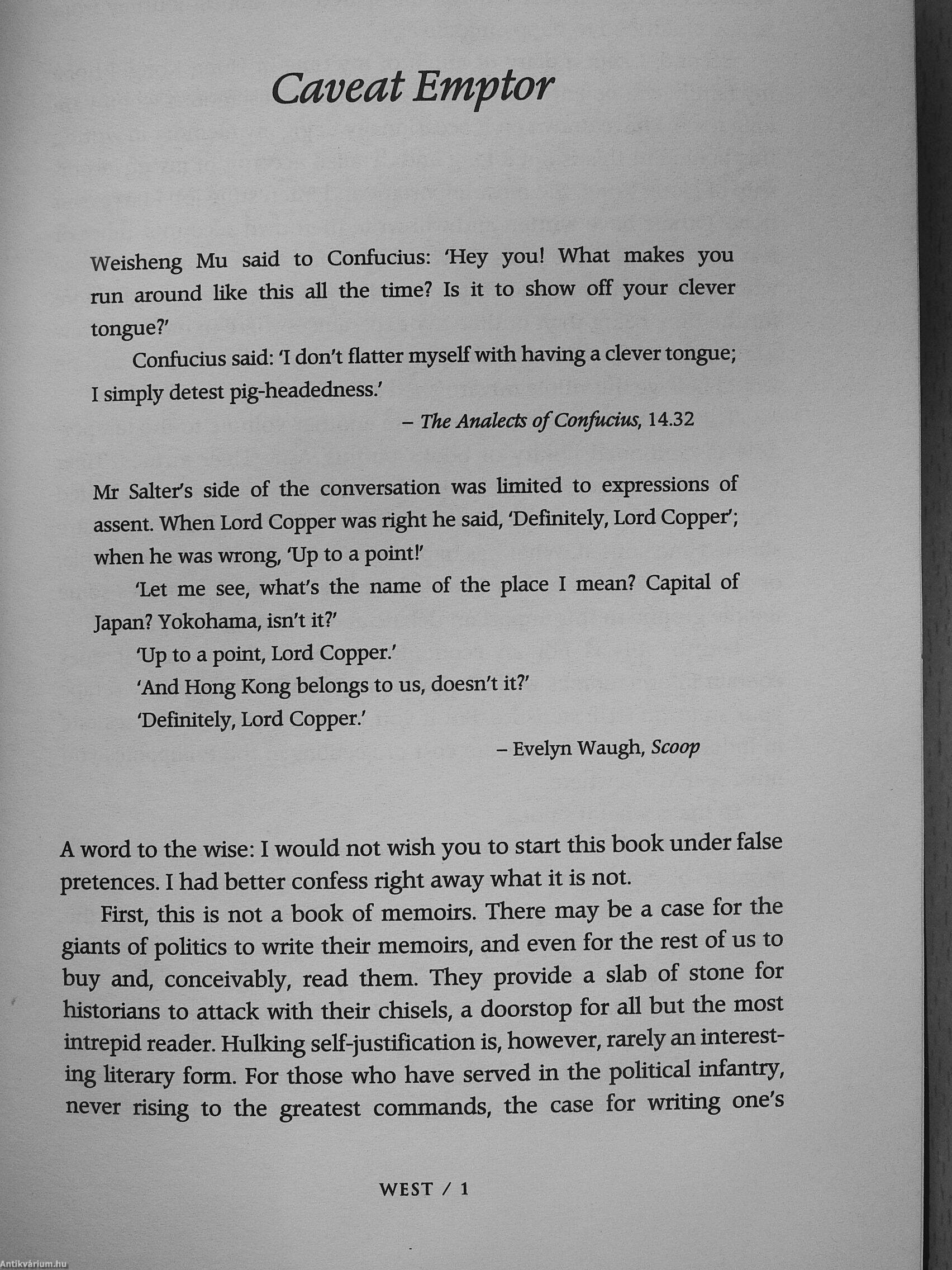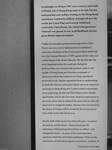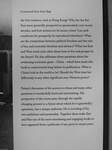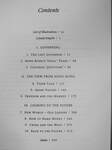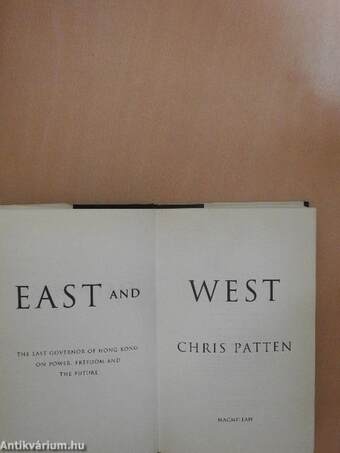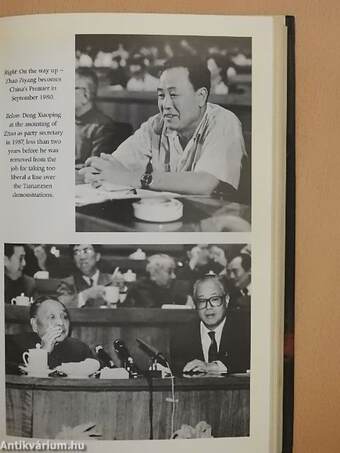1.066.319
kiadvánnyal nyújtjuk Magyarország legnagyobb antikvár könyv-kínálatát

VISSZA
A TETEJÉRE
JAVASLATOKÉszre-
vételek
East and West
The last governor of Hong Kong on power, freedom and the future
| Kiadó: | Macmillan |
|---|---|
| Kiadás helye: | London |
| Kiadás éve: | |
| Kötés típusa: | Fűzött keménykötés |
| Oldalszám: | 340 oldal |
| Sorozatcím: | |
| Kötetszám: | |
| Nyelv: | Angol |
| Méret: | 24 cm x 16 cm |
| ISBN: | 0-333-74787-9 |
| Megjegyzés: | Fekete-fehér fotókkal. |
naponta értesítjük a beérkező friss
kiadványokról
naponta értesítjük a beérkező friss
kiadványokról
Előszó
TovábbFülszöveg
At midnight on 30 June 1997 over a century and a half of British rule in Hong Kong came to an end. On that unforgettable rain-sodden evening on the Hong Kong waterfront, watched by millions of people all over the worid, the Union Flag was lowered, folded and received by Chris Patten, the colony's last governor. 'Nimród' was played. It was, in all likelihood, the last great British imperial moment.
Unlike his immediate predecessors as governor, Chris Patten viras not a career diplomat but an established . politician, Chairman of the Conservative Party which had won the General Election of 1992 against all the odds, and a close friend of the Prime Minister. He decided that the most important action he could take during his governorship was to honour the promises made to the people of Hong Kong and introduce a measure of democracy before the handover to China; and this he proceeded to do, despite opposition from or undermining by both the Chinese authorities (which was to be... Tovább
Fülszöveg
At midnight on 30 June 1997 over a century and a half of British rule in Hong Kong came to an end. On that unforgettable rain-sodden evening on the Hong Kong waterfront, watched by millions of people all over the worid, the Union Flag was lowered, folded and received by Chris Patten, the colony's last governor. 'Nimród' was played. It was, in all likelihood, the last great British imperial moment.
Unlike his immediate predecessors as governor, Chris Patten viras not a career diplomat but an established . politician, Chairman of the Conservative Party which had won the General Election of 1992 against all the odds, and a close friend of the Prime Minister. He decided that the most important action he could take during his governorship was to honour the promises made to the people of Hong Kong and introduce a measure of democracy before the handover to China; and this he proceeded to do, despite opposition from or undermining by both the Chinese authorities (which was to be expected) and many in Hong Kong and London (which was perhaps more surprising), hi East and West Patten writes, frankly and directiy, and for the first time, about his experiences as governor, about why he adopted the stance that he did, and about how he fought his battles. Anyone who was moved by the drama of 30 June will be riveted by the account given here of the events that led up to it.
But the bulk of the book is not about the past - it is about the present and the future. Patten found that the experience of Hong Kong allowed him to reflect - and changed his views - on many of the most important questions which face all modern politicians. What are the real sources of material prosperity of societies - societies, in
(Continued on back flap)
(Continued from front flap)
the first instance, such as Hong Kong? Why has the Far East more generally prospered so spectacularly over recent decades, and how serious are its recent crises? Can such conditions for prosperity be reproduced elsewhere? What are the connections between pohtical freedom and the rule of law, and economic freedom and advance? What can East and West teach each other about how to live and prosper in the future? He also addresses those questions about the awakening economic giant - China - which have made this book so controversial long before its publication. What is China's role in the world to be? Should the West treat her differendy to any other significant non-Western power?
Patten's discussion of the answers to these and many other questions is wonderfully lucid and entertaining. His perspective of the recent past, through the rapidly changing present to a fumre about which he is (guardedly) optimistic, has a unique authority. He is revealing of his own ambitions and personality. Together these make East and West one of the most stimulating and engaging books to have appeared from a politician of any party in recent years. Vissza
Témakörök
- Történelem > Társadalomelmélet
- Történelem > Legújabb kor
- Szociológia > Politikai szociológia
- Életrajz > Történelmi személyiségek > Külföldi
- Életrajz > Történelmi személyiségek > Politikusok
- Közgazdaságtan > Gazdaságpolitika
- Idegennyelv > Idegennyelvű könyvek > Angol > Szociológia > Politikai szociológia
- Idegennyelv > Idegennyelvű könyvek > Angol > Életrajz > Történelmi személyiségek > Külföldi
- Idegennyelv > Idegennyelvű könyvek > Angol > Életrajz > Történelmi személyiségek > Politikusok
- Idegennyelv > Idegennyelvű könyvek > Angol > Közgazdaságtan > Gazdaságpolitika
- Idegennyelv > Idegennyelvű könyvek > Angol > Történelem > Európa története > Egyéb
- Idegennyelv > Idegennyelvű könyvek > Angol > Történelem > Egyéb
- Történelem > Életrajz > Politikusok, történelmi személyiségek > Külföldi
- Történelem > Idegennyelvű > Angol
- Történelem > Politika > Belpolitika > Kormányok
- Történelem > Kontinensek szerint > Ázsia, ázsiai országok története > Távol-Kelet
- Történelem > Kontinensek szerint > Európa, európai országok története > Nyugat-Európa > Anglia
- Történelem > Legújabb kor > Globalizálódó világ
- Történelem > Politika > Politikai rendszerek
- Történelem > Politika > Politológia



